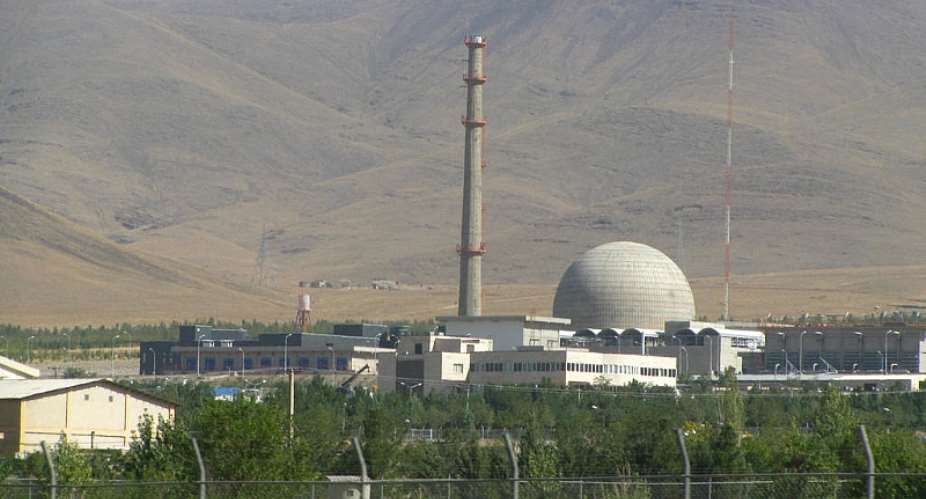France and its two European partners in the Iran nuclear negotiations, Germany and the UK, say they will protest to the UN atomic energy agency in the wake of Tehran's decision to limit access to the agency's inspectors.
France will lodge a complaint with the International Atomic Energy Agency (IAEA) in the near future, Foreign Minister Jean-Yves Le Drian told a parliamentary hearing on Tuesday.
The minister indicated that the three European partners to the Joint Comprehensive Plan of Action (JCPoA), France, Germany and the UK, will present a resolution condemning Iran's decision to limit access to IAEA inspectors as of 21 February.
Separately, in a telephone call on Tuesday, French President Emmanuel Macron asked his Iranian counterpart, Hassan Rouhani, for "clear gestures" and an immediate return to the terms of the nuclear supervision deal agreed in 2015 with Western powers.
Macron expressed his deep concern at the decisions taken by Iran in violation of the 2015 Vienna Agreement and recalled "the efforts made by France, with its partners, in recent years, to allow a negotiated solution".
Iran has flatly rejected French avances.
"The JCPoA cannot be renegotiated in any way and the only way to maintain and revive it is the lifting of US sanctions imposed against Iran," Rouhani was quoted by the state sponsored Mehr news agency in response to Macron.
Rouhani also refused to take any responsability for recent steps away from the JCPoA.
“The gradual reduction of JCPoA obligations by Iran is the result of the withdrawal of the United States from JCPoA on 8 May 2018," the Iranian leader said, pointing to what he called the "inability of three European countries (including France, UK and Germany) to fulfill their obligations under JCPoA, which can be reversed immediately after the fulfillment of obligations by other parties involved in the nuclear talks.”
Iran has always denied any intent to weaponise its nuclear programme.
Grand Ayatollah Ali Khamenei, referring to a fatwa against nuclear weapons, says on his website that Iran does “not need a nuclear weapon either in the present time or in the future. A nuclear weapon is a source of trouble for a country like ours”.
'Serious consequences'
But the US, along with Britain, France and Germany (the "E3") have always remained sceptical.
Last Monday, the E3 issued a draft resolution, backed by the United States, voicing "serious concern" at Iran's reduced cooperation and urging the authorities in Tehran to reverse their steps.
Russia and Iran have warned of serious consequences if that resolution passes.
"I have to give this warning, that actions against our expectations will have adverse effects on diplomatic processes, and can quickly close the windows of opportunity," Iran's government spokesman Ali Rabiei told reporters.
Iran expects "all parties to act rationally and prudently," he added. "We are still committed to diplomacy."





 Supreme court declares payment of wages to spouses of President, Vice President ...
Supreme court declares payment of wages to spouses of President, Vice President ...
 Publish full KPMG report on SML-GRA contract – Bright Simons to Akufo-Addo
Publish full KPMG report on SML-GRA contract – Bright Simons to Akufo-Addo
 Kumasi International Airport to begin full operations by end of June
Kumasi International Airport to begin full operations by end of June
 Election 2024: Our ‘real challenge’ is getting ‘un-bothered’ youth to vote – Abu...
Election 2024: Our ‘real challenge’ is getting ‘un-bothered’ youth to vote – Abu...
 [Full text] Findings and recommendations by KPMG on SML-GRA contract
[Full text] Findings and recommendations by KPMG on SML-GRA contract
 Renegotiate SML contract – Akufo-Addo to GRA, Finance Ministry
Renegotiate SML contract – Akufo-Addo to GRA, Finance Ministry
 J.B Danquah-Adu murder trial: Sexy Dondon to Subpoena Ken Agyapong, Ursula Owusu
J.B Danquah-Adu murder trial: Sexy Dondon to Subpoena Ken Agyapong, Ursula Owusu
 Galamsey: Five Burkinabes jailed 20 years each for mining
Galamsey: Five Burkinabes jailed 20 years each for mining
 'It's no crime' – Abu Sakara defends Alan's exit from NPP
'It's no crime' – Abu Sakara defends Alan's exit from NPP
 'We know all your houses, pay your bills now or we’ll disconnect you; we're all ...
'We know all your houses, pay your bills now or we’ll disconnect you; we're all ...
